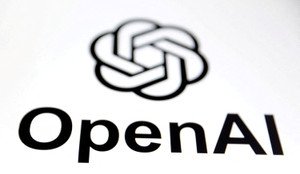Scope Ratings refines sovereign methodology to sharpen its fundamentals-based approach
Published by Gbaf News
Posted on July 12, 2018
4 min readLast updated: January 21, 2026

Published by Gbaf News
Posted on July 12, 2018
4 min readLast updated: January 21, 2026

Scope’s approach distinguishes itself from the US rating agencies in the fundamental starting-point and communication of the sovereign analysis, the rating levels, the volatility of change in those levels as well as the main rating drivers.
“Scope has updated its methodology to sharpen its analytical edge, provide investors with greater insight on the credit risk captured by key criteria and provide even greater transparency for its analytical approach,” says Giacomo Barisone, Head of Public Finance at Scope.
The refinements add value in many ways by providing a better assessment and explanation of the risks captured by the key criteria, which itself, remain unchanged, says Barisone.
• Inflation: Scope has adjusted the inflation rate calculation to better account for the risk of long periods of high inflation as well as sustained periods of low inflation or deflation. Both can be economically damaging, by, respectively, undermining the credibility of the local currency as a main store of value, or constraining growth by dampening consumption and business confidence.
• Credit extension: Early detection of credit bubbles and credit squeezes is vital for assessing sovereign risk. Scope has refined its measure of the credit-to-GDP gap to account for a sovereign’s credit flow imbalance as well as the risk of a credit bubble emerging as large deviations from trend, both positive (high leverage) and negative (deleveraging), are a vulnerability.
• Demographics: A country’s old-age dependency ratio, which indicates the share of the 65+ population dependent on the working-age population, captures more comprehensively the demographic challenges sovereigns face – pension funding, healthcare costs – than reliance on population-growth forecasts.
Scope’s fundamentals-based approach helps set the agency apart from its US rivals, illustrated, for instance, by how the creditworthiness of euro area periphery countries was assessed between 2009-2018.
Scope downgraded Portugal, Greece, Italy, Ireland and Spain ahead of its competitors, essentially between Q1 2009 to Q4 2010, ahead of the crisis. During the height of the crisis and market turmoil, from 2011-2013, Scope’s ratings remained largely stable, with the exception of Greece. After the crisis, Scope was quickest to upgrade ratings on structural reforms conducted at a national level and the euro area governance reforms, the impact of which has been underestimated.
“This rating cycle highlights Scope’s fundamentals-driven approach, which aims to balance accuracy and stability by focusing on a sovereign’s long-term structural issues as opposed to short-term cyclical trends or market movements,” says Barisone.
Scope’s approach distinguishes itself from the US rating agencies in the fundamental starting-point and communication of the sovereign analysis, the rating levels, the volatility of change in those levels as well as the main rating drivers.
“Scope has updated its methodology to sharpen its analytical edge, provide investors with greater insight on the credit risk captured by key criteria and provide even greater transparency for its analytical approach,” says Giacomo Barisone, Head of Public Finance at Scope.
The refinements add value in many ways by providing a better assessment and explanation of the risks captured by the key criteria, which itself, remain unchanged, says Barisone.
• Inflation: Scope has adjusted the inflation rate calculation to better account for the risk of long periods of high inflation as well as sustained periods of low inflation or deflation. Both can be economically damaging, by, respectively, undermining the credibility of the local currency as a main store of value, or constraining growth by dampening consumption and business confidence.
• Credit extension: Early detection of credit bubbles and credit squeezes is vital for assessing sovereign risk. Scope has refined its measure of the credit-to-GDP gap to account for a sovereign’s credit flow imbalance as well as the risk of a credit bubble emerging as large deviations from trend, both positive (high leverage) and negative (deleveraging), are a vulnerability.
• Demographics: A country’s old-age dependency ratio, which indicates the share of the 65+ population dependent on the working-age population, captures more comprehensively the demographic challenges sovereigns face – pension funding, healthcare costs – than reliance on population-growth forecasts.
Scope’s fundamentals-based approach helps set the agency apart from its US rivals, illustrated, for instance, by how the creditworthiness of euro area periphery countries was assessed between 2009-2018.
Scope downgraded Portugal, Greece, Italy, Ireland and Spain ahead of its competitors, essentially between Q1 2009 to Q4 2010, ahead of the crisis. During the height of the crisis and market turmoil, from 2011-2013, Scope’s ratings remained largely stable, with the exception of Greece. After the crisis, Scope was quickest to upgrade ratings on structural reforms conducted at a national level and the euro area governance reforms, the impact of which has been underestimated.
“This rating cycle highlights Scope’s fundamentals-driven approach, which aims to balance accuracy and stability by focusing on a sovereign’s long-term structural issues as opposed to short-term cyclical trends or market movements,” says Barisone.
Explore more articles in the Top Stories category











